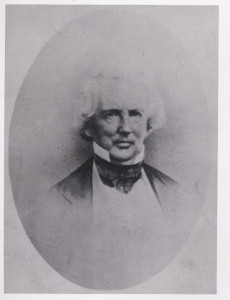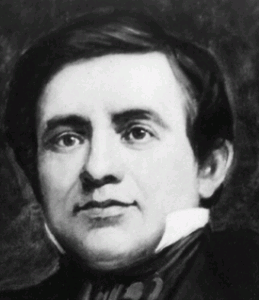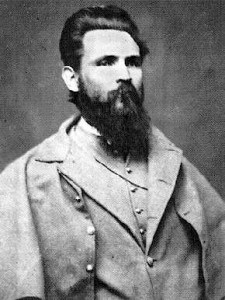The Wise Constant: Keep Stirring Things UP
The February 16, 1861 issue of The New-York Times reported some news from the Virginia Secession Convention, John Janney presiding:
IMPORTANT FROM RICHMOND.; PROCEEDINGS OF THE VIRCINIA STATE CONVENTION. A DISCLAIMER FROM GOV. WISE.
RICHMOND, Friday, Feb. 15.
In the Virginia Convention, the Southern Commissioners were invited to-day to address the Convention on Monday. …
Mr. WISE brought to the notice of the Convention, Mr. STUART’S resolution in the Senate, relative to rash, ill-advised persons contemplating an invasion of Washington. He vindicated himself from such motive, and asked Mr. STUART to explain his resolution.
Mr. STUART disclaimed the remotest reference to Mr. WISE in this resolution.
Mr. WISE then read a letter from two citizens of Staunton, detailing a conversation with Mr. STUART, who had assured them that one object contemplated in the Convention was to remove Gov. LETCHER and put Mr. WISE in his place, and that WISE was aware of it.
Mr. STUART replied he had only mentioned it as a common-place rumor, attaching no importance to it.
Mr. WISE emphatically denied any knowledge of such an extraordinary project till he received that letter. In closing his speech, Mr. WISE said if the Commonwealth ever submits to Black Republican rule, he would turn from her and beg some sister Commonwealth to come and save the mother.
The galleries applauded, and a proposition was made to clear them, but was withdrawn.
Texas Starts Arriving in Montgomery
From the Confederacy Convention in Montgomery, Alabama (The New-York Times February 16, 1861):
IMPORTANT FROM MONTGOMERY.; PROCEEDINGS OF THE SOUTHERN CONVENTION.THE U.S. REVENUE LAWS AND OFFICERS CONTINUED, ETC.
MONTGOMERY, Friday, Feb. 15.
Congress has appointed a Committee of Six to make suitable arrangements for the reception and inauguration on Monday next, which takes place at 1 o’clock that day.
The Chairman stated that he had received a communication relative to the purchase of vessels for the Provisional Government. Referred.
Mr. FEARN presented a letter relative to a new projectile, which has been approved by scientific military men. Referred.
An official copy of the Texas Ordinance of Secession was presented, with the credentials of the Deputies, only one of whom has arrived.
Objection was made to its reception on the ground that the ordinance was not yet ratified.
The Delegate present, Mr. GREGG, was invited to a seat in the Convention.
The Congress then went into secret session, during which an act was passed to continue in office the officers connected with the collection of the customs at the time of the adoption of the Constitution of the Confederate States, with salaries and powers as heretofore, provided the compensation of any of them shall not exceed $5,000 per annum. Collectors are required to execute the same bonds as heretofore, and subordinates are to give bonds one week after the Collector. Officers are required to take an oath to discharge all their duties faithfully and to support the Constitution of the Provisional Government.
A resolution was adopted to continue in office, unless otherwise ordered, the several officers connected with the collection of the duties, until the 1st of April, and the Secretary of the Treasury was instructed to report a plan, to go into effect on the first of April, diminishing the expenses of collecting the revenues in each Custom-House at least fifty per centum.
The injunction of secresy was removed from both these measures.
In 1831 John Janney helped write a bill to abolish slavery in Virginia. In 1834 he bought his first slave.
Alexander Hugh Holmes Stuart from Staunton in northwest Virginia served as Secretary of the Interior during the Fillmore administration. He was a member of the Virginia Senate from 1857-1861.
Originall from Alabama, John Gregg worked in a variety of occupations, including stints as a mathematics professor, judge, and newspaper publisher.
Henry Wise is being Henry Wise.




Pingback: Jubal Early Loves the Union! (in March 1861) | Blue Gray Review